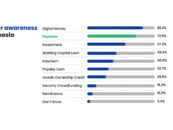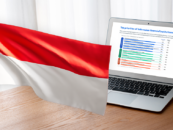
OJK Unveils New Roadmap to Strengthen and Develop Indonesia’s Sharia Banking
by Fintech News Indonesia November 30, 2023The Financial Services Authority (OJK) of Indonesia has unveiled its Islamic banking roadmap to enhance the resilience and impact of the Sharia banking sector in the country.
An update from the previous plan, the 2023-2027 Roadmap for the Development and Strengthening of Indonesian Sharia Banking (RP3SI) outlines strategies including the consolidation of Sharia banking institutions, strengthening risk management, and innovation to differentiate products and services.
RP3SI aims to creating a healthy, efficient, and competitive Sharia banking sector that significantly contributes to the national economy and society’s welfare.
Its implementation revolves around five main pillars covering supply, demand, and OJK’s internal aspects as critical support elements.
These pillars involve strengthening the industry’s structure and resilience, accelerating digitalisation, emphasising Sharia banking characteristics, enhancing its contribution to the national economy, and bolstering regulation, licensing, and supervision.
The roadmap’s success hinges on key enabling factors, including leadership, change management, and collaboration with stakeholders.

Mahendra Siregar
Mahendra Siregar, Chairman of the OJK Board of Commissioners said,
“Our commitment to this roadmap is a joint commitment to improve the sharia banking sector to be even better.
Our hope is that the strategic programs in this roadmap can provide solutions to the challenges faced by the sharia banking sector, and for this reason collaborative efforts are needed from all stakeholders to implement this roadmap optimally.”

Dian Ediana Rae
Dian Ediana Rae, Chief Executive of Banking Supervision said,
“Sharia banking needs to carry out a transformation with two main aspects that need to be improved, namely aspects of resilience and competitiveness, as well as aspects of socio-economic impact.
Sharia banking transformation is not only about increasing shareholder value , but also about changing the paradigm so that it can play a role in increasing social value and community welfare.”





